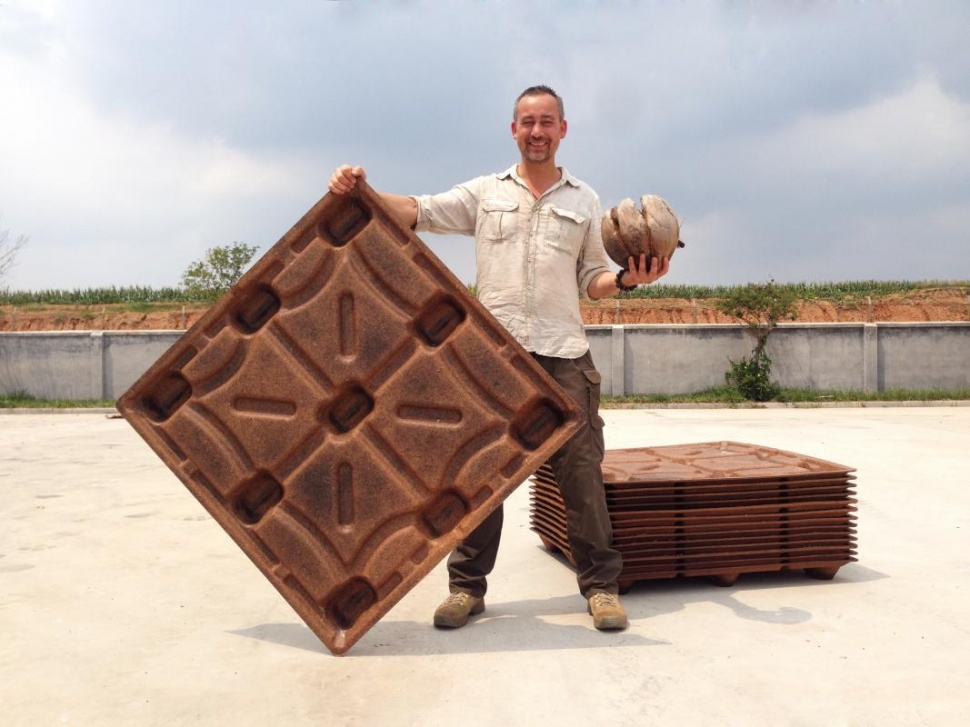Pallet from coconut waste
CocoPallet International from Amsterdam has developed a pallet made from compressed waste from the coconut industry.
 With it, the Dutch organisation has created a new application for this material and an alternative to the scarcity and the higher costs of wooden pallets in Asia and Latin America. For every ten CocoPallets produced, one tree is saved from being cut down. Contrary to the production of pallets or blocks made from compressed wood fibres, the production of CocoPallets does not require any synthetic glue, because the lignin found in the coconut material itself acts as a binding agent. This is where the most significant cost reduction during the production process comes from.
With it, the Dutch organisation has created a new application for this material and an alternative to the scarcity and the higher costs of wooden pallets in Asia and Latin America. For every ten CocoPallets produced, one tree is saved from being cut down. Contrary to the production of pallets or blocks made from compressed wood fibres, the production of CocoPallets does not require any synthetic glue, because the lignin found in the coconut material itself acts as a binding agent. This is where the most significant cost reduction during the production process comes from.
The space required to store CocoPallets is up to 70% less, because the pallets have a nestable design. Furthermore, the CocoPallets meet the safety regulations that apply in the EU.
Their maximum dynamic load capacity is 1,500 kg, which is equal to that of a wooden euro pallet. A CocoPallet with a dynamic load capacity of 3,000 kg is being developed. The CocoPallet is 100% bio-based and can be ground up and used as a soil improver when it no longer serves a transport or storage function. CocoPallet International is looking into the possibilities of recycling the material after the pallets have been used.